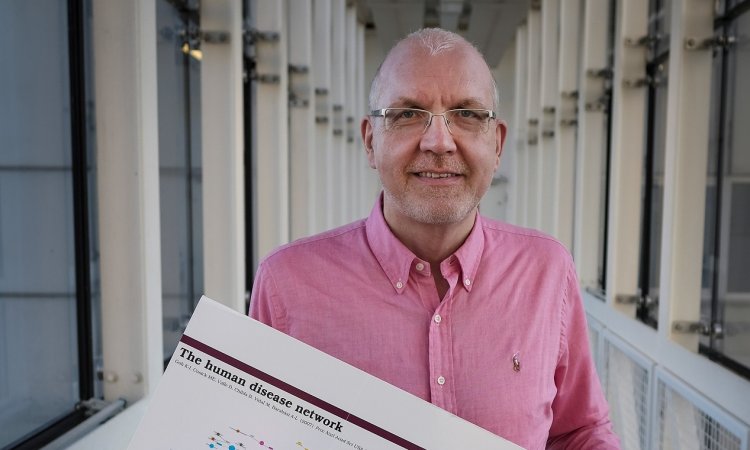Image source: Shutterstock/Bakhtiar Zein
Article • Lab technician shortage
Addressing the critical lack of skilled lab workers
The UK and Europe are facing a serious lab skills shortage over the next decade with medical laboratories among the worst affected.
Report: Mark Nicholls
An ageing population and skilled operators retiring without being replaced by a new generation of lab technicians is at the core of a critical lack of skilled lab workers, with it taking 5-10 years for a technician to become fully competent and an expert in their field. The current challenges facing the technical community were outlined at the Lab Innovations 2019 conference Birmingham, UK, by National Technical Development Centre (NTDC) Director Natalie Kennerley, who pointed to the lack of recognition, career pathways and training as major issues to overcome in ensuring ‘a sustainable technical workforce for the future’.

© Paul Heyes Photography Limited
‘The skills shortage within the UK and Europe is very serious,’ she said. ‘Not only are laboratory skills in short supply, but also increasing numbers of creative arts-based skills are also vulnerable. We have an ageing population who have an extensive knowledge formed over many years within their roles, which will be lost if we cannot find ways to address this problem.’
Research carried out by the Gatsby Foundation has indicated that, by 2030, the UK will require a further 700,000 technicians to support the economy. Kennerley suggested that today’s graduates are often not ‘work-ready’ in terms of understanding how hands-on practical processes work and lack the practical experience to do the job and solve the problems that technical staff work on every day. ‘In the UK, technical roles status is not where it should be. By contrast, in Germany the technician is a highly regarded and respected individual.’
All areas of research could suffer but, she pointed out that this could be particularly acute in the medical arena. ‘If we cannot recruit the right people to do the job, then those areas are at serious risk of collapse,’ Kennerley added. ‘Histology technicians working with hospitals and research institutions are key to ensuring that valuable experimental and/or patient tissue samples are tested/treated correctly and the results produced are accurate and meaningful. Learning to fine tune methods and techniques is a skill built up over many years and cannot simply be learned quickly from textbooks but requires hands-on practical experience.’
The NTDC has developed tools to enable organisations to address these issues, with close links to the Technician Commitment initiative launched in the UK in 2017 to raise the profile of technical staff.
With work required to promote technical careers to the next generation of technicians, steps being taken by the NTDC and other bodies to avert the crisis include promotion of secondments, work shadowing opportunities, apprenticeships and working with schools and colleges to promote careers within the technical community.
Employers will try to introduce [AI] technology as a way of efficiency savings but will need to realise specialist highly trained and skilled technicians will still be needed – programming the equipment and analysing the data output
Natalie Kennerley
The NTDC also provides bespoke tools to support organisations in ensuring they have an engaged, motivated and skilled workforce which is future fit. These include the technician Roles, Responsibilities and Skills audit; the Higher Education Career Pathway tool; the technician development framework. The NTDC has also launched a new online portal designed to capture continuing professional development, and has gathered data to identify high risk areas and help to influence national policy.
‘Training and development of technical staff is also fundamental to the delivery of new and cutting-edge technologies and organisations need to be encouraged to find resources to support staff training and development,’ Kennerley added. This approach can also lead to a much more engaged and motivated sector as they see the value their organisation places on them and their willingness to invest in their development.’
While Artificial Intelligence (AI) also has a role to play in areas such as auto analysers and robotic samplers, she stressed that additional appropriate training is essential to optimise AI advances. ‘Employers will try to introduce this technology as a way of efficiency savings (staff costs reduction) but will need to realise specialist highly trained and skilled technicians will still be needed (and at a more advanced level) – programming the equipment and analysing the data output.’
However, Kennerley concluded, ‘Despite the challenges to the sector, there has never been a better time to be a technician. With the support of organisations such as the NTDC and the Science Council and with the help of initiatives such as the Technician Commitment we will make a difference – the future is bright.’
20.02.2020





